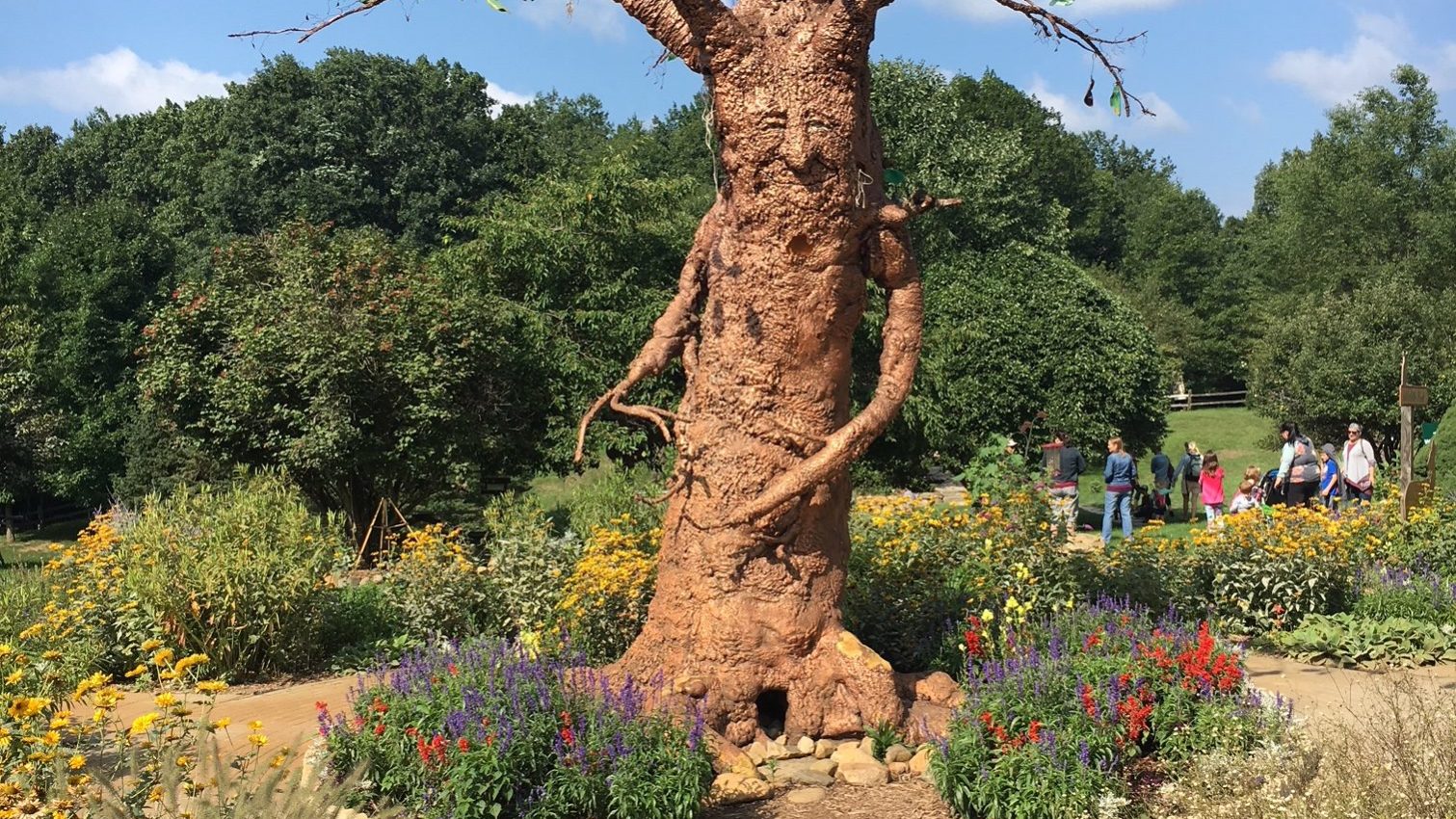Located in the rolling hills of Michigan between Detroit and Flint, Howell Nature Center provides wildlife rehabilitation, camps, educational programming, and a retreat from city living. The Center is a validated mission of Detroit Presbytery that refinanced its existing loan with the Presbyterian Investment and Loan Program (ILP) last year and recently received a new loan for $300,000 to complete needed facilities improvements and renovations.
The Center’s mission, expressed by CEO John “JC” Carlson, is, “Filled with mutual love and respect, the Howell Nature Center teaches us to be faithful caretakers of one another and the world around us.” Part of that caretaking, he says, is to be good stewards of the Center’s “modern but aging” facilities. Carlson is eager to begin work on projects to revitalize buildings and grounds that haven’t been updated in 20 to 30 years. “We need to upgrade our infrastructure, repurpose some facilities, address the ascetics and give the facility some personality,” he says. “We really want our mission to be evident throughout our facilities – for our dots to connect – so we have the reputation for facility excellence.” Available for year-round outdoor activities that include hiking, bird watching, cross-country skiing, snow shoeing, and ice skating.
Howell Nature Center offers four distinct areas of programming in pursuit of its mission.
The first area is wildlife rehabilitation, a program that grew from serving 2,000 injured or orphaned animals in 2015 to over 4,000 in 2018. In cooperation with its Wild Wonders Wildlife Park, the Center is the caretaker of over 75 Michigan-centric animals. The second set of programming is community and faith-based retreats that allow participants to connect with God in nature. Carlson says, “We want to really attract religious-based organizations to our facilities and our programs, our chapel, our lake, and our acreage.” A membership program allows regular attendees to experience the Center through a variety of programming and experiential opportunities. At the heart of many outdoor facilities, summer day and overnight camps serve 4,000 children annually through the Center’s third program area. “We want to help kids unplug and connect to nature,” says Carlson, encouraging a sense of stewardship for creation, combatting sedentary indoor pursuits and the what psychologist Richard Louv coined “nature-deficit disorder.” Finally, the fourth program area is to meet the educational needs of schools in lower-Michigan and northern-Ohio by offering one- to five-day camp experiences for 10,000 students each school year.
“The capital investments we will make will help us to better achieve our mission,” says Carlson of the loan funds. “It’s our hope that kids feel comfortable and the facilities are appealing and functional.”
A key component of Howell Nature Center’s success and positive outlook is its relationship with the Presbytery of Detroit. The ILP refinancing and loan proposals were developed in conjunction with and approved by the presbytery’s Board of Trustees. Carlson says the center will engage a focus group from Detroit Presbytery with key leaders from its family and youth program development areas as it looks to expand and enhance programming. He hopes to build relationships with every congregation in the presbytery to explore how the Center can continue to support Detroit Presbytery’s outdoor ministries and “create a second home” for youth and families.
Along with its regional focus, Howell Nature Center is also a national destination. It’s one of three Heifer Global Village sites in the United States that gives students the opportunity to experience and understand life in the developing world. The Center also hosts short-term mission groups from around the country as they serve in nearby areas.
Carlson says facilities renovations and improvements will begin in October and be completed by March. Saying the loan will help the Center achieve a twofold objective of expanding programs and providing a better experience for guests, he expects substantial growth as a result of the investment “because the real estate of these facilities is exceptional.”
“My goal is to help children connect with nature, to find God in the wilderness,” he says of the anticipated ability to serve more students via the Center’s core mission. “I need them as much as they need me.”

